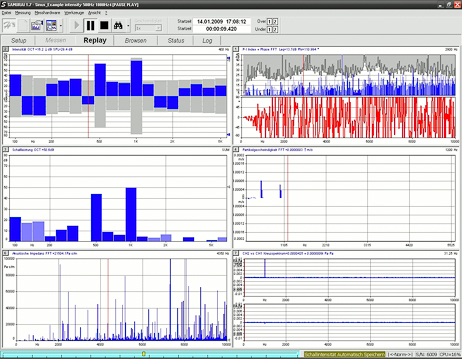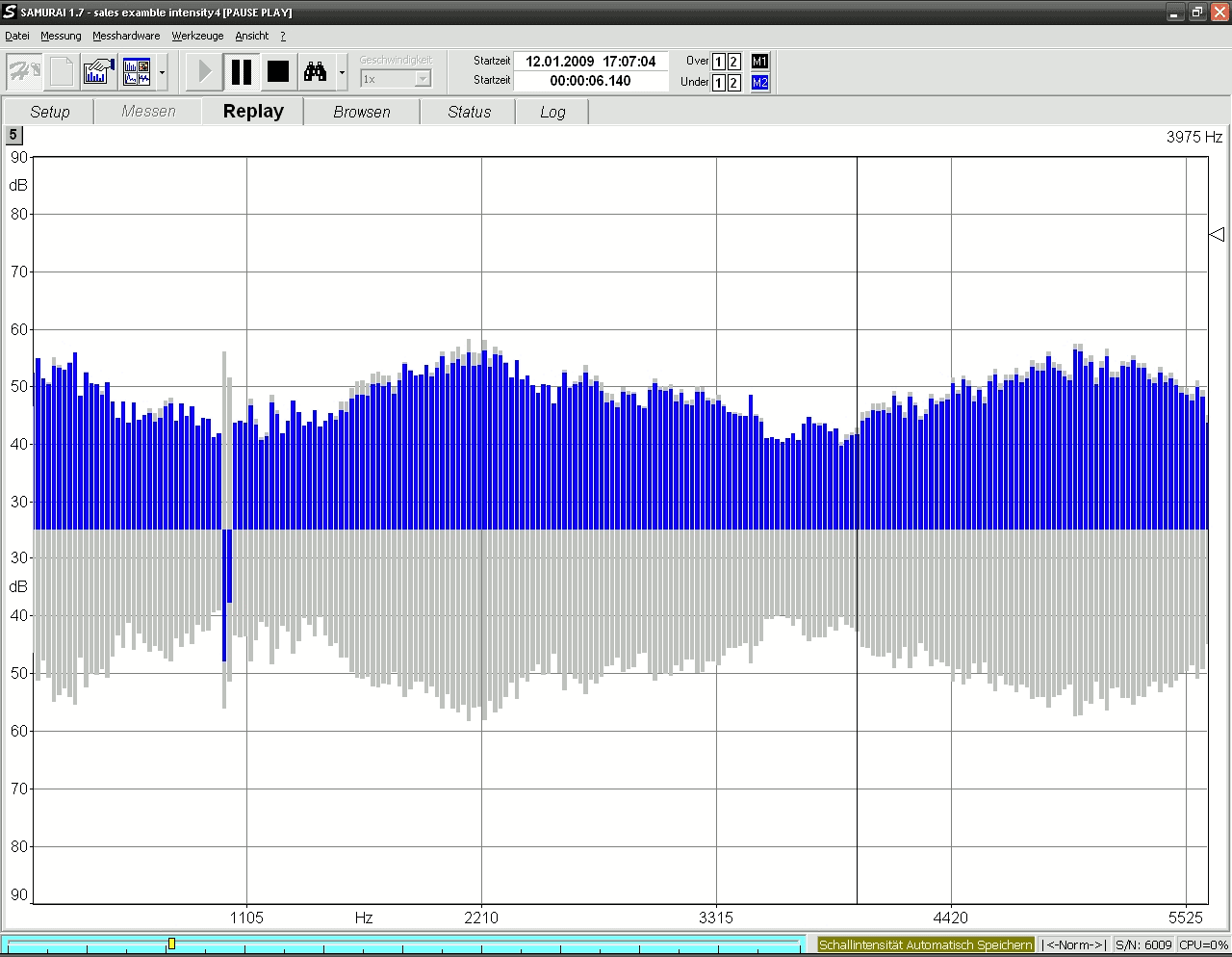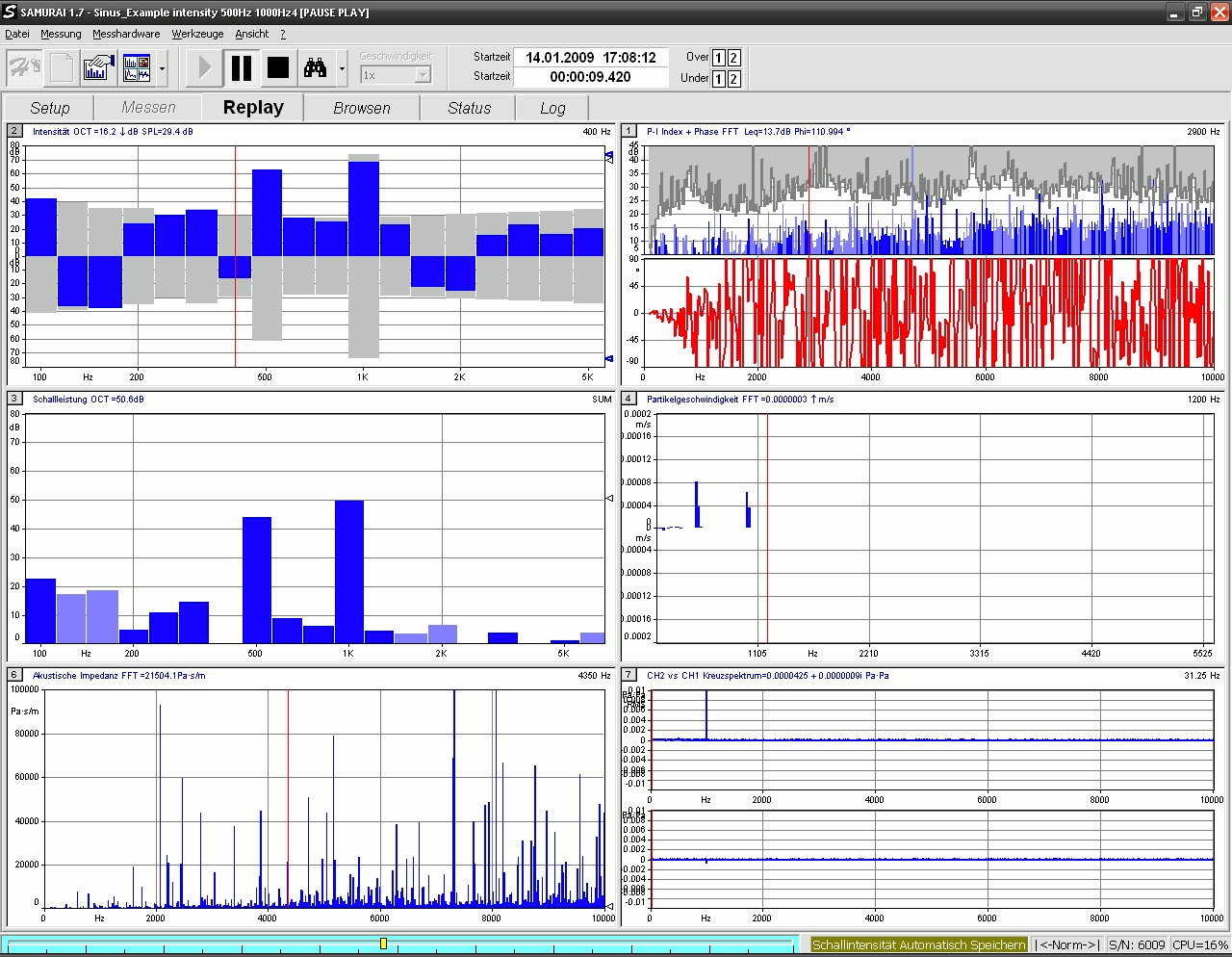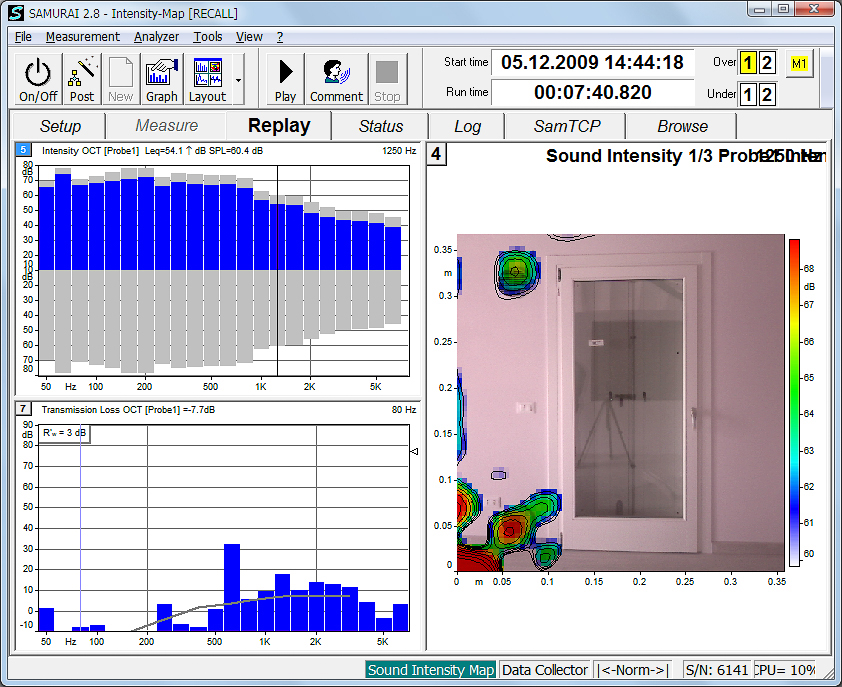SAMURAI Option

Overview
Field of Application:
When investigating acoustic emission and propagation processes, the direction- and frequency-dependent energy flow of a sound field is of interest and is described by the sound intensity (energy per area and time, unit W/m2).
Sound intensity measurements are made e.g. for locating sound sources or to determine the sound power emitted from a surface. Determining the sound power by means of intensity measurements rather than by methods based only on sound pressure measurements brings advantages e.g. in the suppression of extraneous sound sources.
Furthermore, sound intensity measurements can be used in the field of building acoustics to determine the transmission loss R ' over a partial area.
Description:
Based upon the two microphone signals from a sound intensity probe, this option calculates the sound intensity at the position of the probe in the axial direction of the microphones. The frequency-dependent intensity thus calculated is displayed in third-octave bands or constant-width bands (the number of lines is selectable).
By rotating the probe, the direction of maximum intensity can be found. Furthermore, for stationary noise sources it is possible to use a scanning method to determine the sound power emitted from a defined surface.
The procedure implemented for determining the sound intensity is based upon analysis of the phase differences resulting e.g. from different paths between the sound source and the two microphones. For this reason, high demands are made upon the microphone pair in the probe. The software allows the measurement chain to be calibrated with regard to both pressure and phase.
Figure 2:
Sound pressure, intensity and power spectrum, P-I Index + Phase, Particle velocity, acoustical impedance and cross-spectrum
Figure 3:
Transmission loss, intensity spectrum, Mapping of the intensity spectrum (SAMURAI-option SOUND MAP)
Standards
Implemented Standards
IEC 61043: Class 1; Electroacoustics; instruments for the measurement of sound intensity; measurement with pairs of pressure sensing microphones
ISO 9614-1: Acoustics; determination of sound power levels of noise sources using sound intensity; part 1: measurement at discrete points (Sound Intensity 1: partial sound power determination over a defined surface)
ISO 9614-2: Acoustics - Determination of sound power levels of noise sources using sound intensity - Part 2: Measurement by scanning (Sound Intensity 1: partial sound power determination over a defined surface)
ISO 9614-3: Acoustics - Determination of sound power levels of noise sources using sound intensity - Part 3: Precision method class 1 for measurement by scanning (Sound Intensity 1: partial sound power determination over a defined surface)
ANSI-S12-12: Engineering Method for the Determination of Sound Power Levels of Noise Sources Using Sound Intensity (partial sound power determination over a defined surface.)
ECMA-160: Determination of Sound Power Levels of Computer and Business Equipment using Sound Intensity Measurements; Scanning Method in Controlled Rooms (Sound Intensity 1: partial sound power determination over a defined surface)
Feature
| Sensors | Intensity probes, 3D Intensity probes |
| Measurement range | 20 Hz to 10 kHz, depending on spacer (optional extended frequency range possible) |
| Softwareumfang |
|
Requirements
This software option require a valid SAMURAI license.





